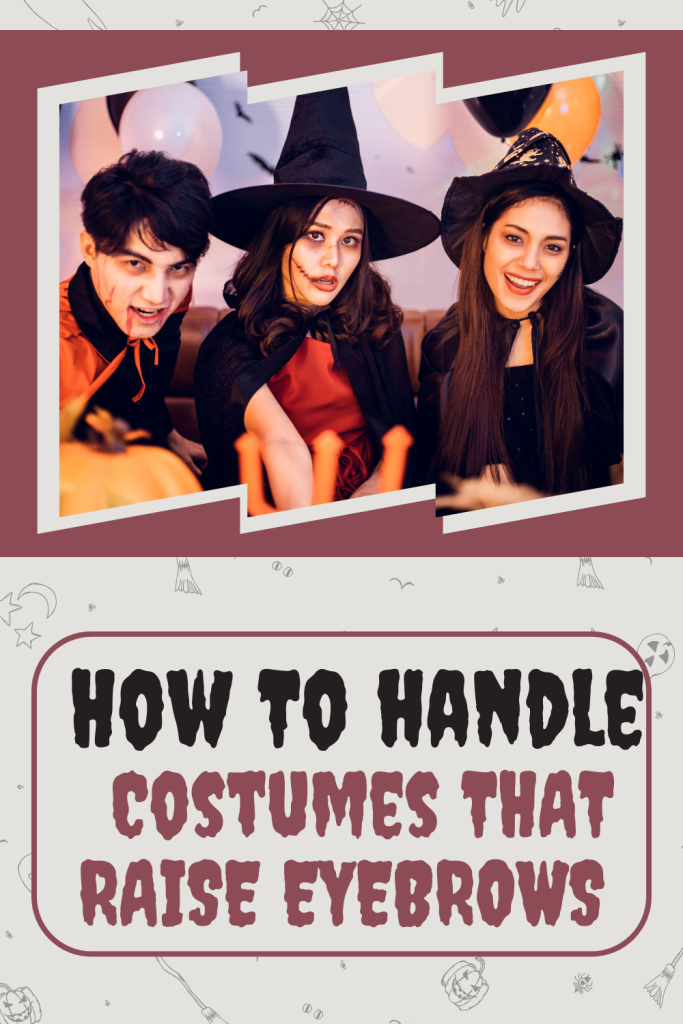October 31, 2023
With Halloween comes the annual debate about what costumes are appropriate in the workplace.
Americans have their opinions about what amounts to an “acceptable” costume.
What costumes are considered acceptable? Offensive Halloween costumes can vary depending on cultural sensitivities, social norms, and individual perspectives. What one person finds offensive, another might not. Here are some of the most common costumes that lead to controversy.
- Cultural and Racial Stereotypes: Costumes that perpetuate racial or ethnic stereotypes can be deeply offensive. This includes dressing up as a specific racial or ethnic group in a way that mocks or caricatures them.
- Blackface or Brownface: Applying makeup to imitate someone of a different race, especially in a derogatory or mocking manner, is highly offensive and racist.
- Religious Symbols or Figures: Dressing as religious figures or using religious symbols in a disrespectful or irreverent way can be offensive to many people.
- Gender-Based Stereotypes: Costumes that rely on harmful gender stereotypes or mock individuals based on their gender identity can be offensive.
- Mental or Physical Disabilities: Costumes that make fun of or stigmatize people with mental or physical disabilities are offensive and hurtful.
- Sexualized or Inappropriate Themes: Extremely revealing or sexually explicit costumes can be offensive in a professional or public setting.
- Historical Atrocities or Tragedies: Costumes that make light of historical tragedies, such as the Holocaust or acts of terrorism, are generally considered deeply offensive.
- Cultural Appropriation: Dressing in a way that appropriates elements of someone else’s culture, such as wearing sacred clothing or traditional items as a costume, can be offensive.
- Political Figures or Events: Costumes that mock or demean political figures, events, or ideologies can be divisive and offensive to some.
- Inflammatory or Hate Symbols: Costumes that incorporate hate symbols, such as swastikas or other hateful icons, are highly offensive and unacceptable.
While Halloween is a time for fun and creativity, it’s essential for both employers and employees to understand the fine line between expression and offense. In this blog post, we’ll explore how a corporation might handle an employee filing a discrimination complaint over offensive Halloween costumes and why not everything offensive is legally actionable.

Recognizing the Importance of a Respectful Workplace
Before diving into the specifics of addressing offensive Halloween costumes, it’s crucial to emphasize the importance of maintaining a respectful and inclusive workplace environment year-round. This includes respecting cultural, gender, and individual sensitivities. However, it’s also important to note that most employees don’t have a case just because a co-worker or boss was rude, insensitive or just plain old stupid.
Understanding Discrimination Complaints
Discrimination complaints often revolve around violations of workplace laws that protect employees from discrimination based on protected characteristics such as race, gender, religion, and disability. Employees who feel that they’ve been subjected to discrimination may file a complaint with their HR department or an external agency like the EEOC. Complaints should be investigated and documented, no matter how trivial they seem.
Offensive Halloween Costumes: A Delicate Situation
In recent years, offensive Halloween costumes have generated controversy in workplaces. Employees might feel uncomfortable, offended, or even discriminated against due to their colleagues’ costume choices. However, it’s important to note that not everything offensive is legally actionable.
When Offensive Becomes Discriminatory
The key question in addressing offensive Halloween costumes is whether the costume creates a hostile or discriminatory work environment. For a Halloween costume to cross into the realm of actionable discrimination, it must:
- Target Protected Characteristics: The costume must target or mock an individual’s race, gender, religion, disability, or other protected characteristic.
- Create a Hostile Environment: The costume must create a hostile or intimidating work environment for the employee affected.
- Impact Workplace Performance: The offensive costume must negatively impact the employee’s ability to perform their job.
Handling Discrimination Complaints
If an employee feels that an offensive Halloween costume constitutes discrimination, they should follow their company’s internal procedures for reporting such incidents. The company is then obligated to investigate the complaint promptly, impartially, and thoroughly.
Not Everything Offensive is Legally Actionable
It’s important to understand that not every offensive Halloween costume will meet the legal threshold for discrimination. Freedom of expression is a valid concern, and in some cases, an offensive costume might be an innocent oversight or a lack of awareness. In such situations, education and open dialogue can go a long way in promoting understanding and preventing future incidents.
Promoting a Respectful Workplace
The key to a harmonious workplace during Halloween and year-round lies in promoting awareness, respect, and inclusivity. Employers should consider providing guidelines or training on appropriate workplace attire during Halloween and encouraging employees to be considerate of their colleagues’ feelings.
In the world of employment law, addressing discrimination complaints related to Halloween costumes is a nuanced process. While not everything offensive is legally actionable, it’s crucial for corporations to take such complaints seriously and maintain a workplace where all employees feel respected and valued. Open communication, education, and a commitment to fostering a respectful workplace can help prevent misunderstandings and conflicts related to Halloween costumes and beyond.
© 2023 Pietrucha Law Firm, LLC. All Rights Reserved.
(630) 344-6370 info@pietruchalaw.com
1717 N Naper Blvd Suite 200, Naperville, IL 60563
